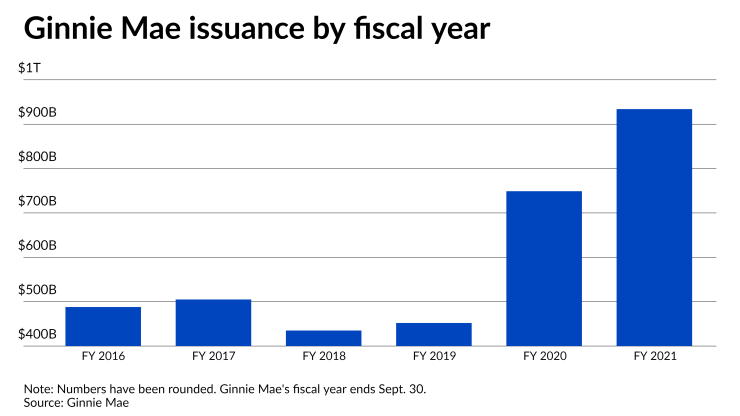Ginnie Mae has expanded its
The government agency, an arm of the Department of Housing and Urban Development, began allowing the use of electronic signatures and remote online notarization for modifications of some paper loans on Nov. 15.
This change could help servicers contending with high volumes due to a surge in
“Ginnie Mae is committed to providing issuers with the tools they need to make it possible for qualified homeowners modifying their mortgages to do so with as few obstacles as possible,” said Michael Drayne, Ginnie’s acting executive vice president, in a press release.

E-signing and RON, which gained some traction
Electronic documents containing modification agreements, and RON platforms, must meet certain standards aimed at ensuring that digital data is in a format designed to be exchangeable between systems. The Mortgage Industry Standards Maintenance Organization welcomed the requirements.
“An important component of Ginnie Mae’s action is that modifications transmitted electronically must be delivered only as MISMO Smart docs or PDFs,” president Seth Appleton said in an emailed press statement.
“This is a commonsense step to provide clarity to issuers and consumers,” he said.
Some paper-out requirements remain. The document custodian must produce a hard copy of any loan modification agreement for the loan file even if it’s transmitted electronically.
Modification agreements are increasingly important for Ginnie Mae issuers to track and retain due to a recent




